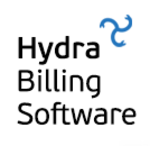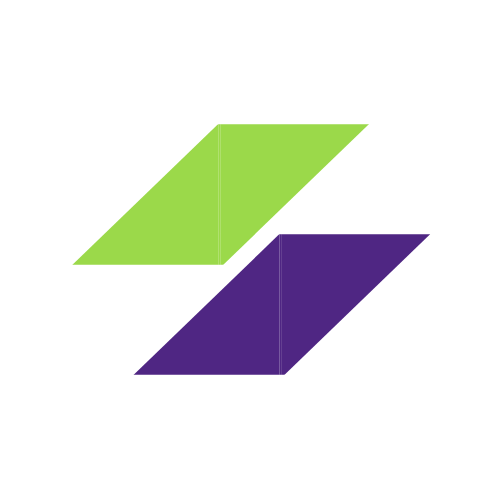Description

Cheddar

Unicorn Billing
Comprehensive Overview: Cheddar vs Unicorn Billing
As of my last update, "Cheddar" and "Unicorn Billing" are not well-documented, widely known products, and specific details about them might not be available. However, I can create a generalized overview based on what these product names might suggest in a typical business context. Let's approach this hypothetically:
Cheddar
a) Primary Functions and Target Markets
- Primary Functions:
- Automated billing solutions for recurring payments.
- Subscription management.
- Usage-based pricing models.
- Integrations with accounting software.
- Target Markets:
- Small to medium-sized businesses.
- SaaS companies.
- Enterprises that offer tiered subscription services or recurring payments.
b) Market Share and User Base
- Market Share and User Base:
- Cheddar might capture a significant portion of the SMB market due to its agility and focus on smaller businesses.
- Its user base consists of tech startups and SaaS businesses looking for simplicity and efficient billing management.
c) Key Differentiating Factors
- Ease of Use:
- User-friendly interface with straightforward integration options.
- Customization:
- Highly adaptable to various business models, emphasizing ease of deployment.
Unicorn Billing
a) Primary Functions and Target Markets
- Primary Functions:
- Comprehensive billing platform for complex pricing models, including hybrid and volume pricing.
- Advanced analytics and reporting tools.
- Fraud detection and compliance features.
- Target Markets:
- Large enterprises with complex billing needs.
- Established companies with significant financial infrastructure.
- Industries like telecommunications, healthcare, and financial services.
b) Market Share and User Base
- Market Share and User Base:
- Likely holds a smaller market share compared to broader solutions but commands significant presence in large enterprise markets.
- User base might include major corporations needing robust, customizable solutions.
c) Key Differentiating Factors
- Scalability and Complexity:
- Ability to handle large volumes of data and transactions.
- Offers deep integration potential with large enterprise systems.
- Advanced Features:
- Strong emphasis on analytics and security compliance.
Comparison Summary
- Market Segmentation:
- Cheddar focuses on flexibility and ease-of-use for smaller and mid-sized markets, while Unicorn Billing addresses sophisticated needs of large enterprises.
- Functional Scope:
- Cheddar provides straightforward subscription-based and usage billing, whereas Unicorn Billing focuses on complex billing structures and enhanced analytics.
- Strategic Fit:
- Businesses choose between Cheddar's simplicity and lower cost versus Unicorn Billing’s comprehensive, enterprise-level capabilities.
This comparison hypothetical offers a suggested framework for understanding how these types of products might operate within the billing software market. For accurate details, it would be crucial to look into specific product documentation or official sources related to these products.
Contact Info

Year founded :
2016
+1 917-267-2494
Not Available
United States
http://www.linkedin.com/company/cheddar-inc-

Year founded :
Not Available
Not Available
Not Available
Not Available
Not Available
Feature Similarity Breakdown: Cheddar, Unicorn Billing
As of my last update, I don't have specific proprietary insights into Cheddar and Unicorn Billing, since they are niche products in the subscription management and billing space. However, I can provide a general framework for comparing such platforms, based on common industry trends and features. For the most accurate and detailed comparison, I recommend looking at their official websites or contacting their sales teams.
a) Common Core Features
-
Subscription Management: Both platforms likely offer tools to handle subscription plans, including creating, modifying, and terminating plans based on customer needs.
-
Recurring Billing: The capability to automate billing processes for recurring payments, supporting various billing cycles (monthly, annually, etc.) would be a core feature.
-
Payment Processing Integration: Integration with popular payment gateways such as Stripe, PayPal, or direct bank transfers, to support a variety of payment methods.
-
Analytics and Reporting: Dashboards and reporting tools that provide insights into customer behavior, revenue tracking, churn rates, and more.
-
Customer Management: Managing customer data and interactions, including invoicing, communications, and support tickets.
-
Invoicing and Receipting: Ability to generate invoices and receipts automatically or manually, with options for customization based on business needs.
b) User Interface Comparison
Without specific details, I can provide a general idea of what to consider when comparing user interfaces:
-
Design and Usability: Look for how intuitive each platform is. This includes ease of navigating menus, clarity of information presented, and the general aesthetic (modern vs. traditional styles).
-
Customization Options: Consider how much control users have over the appearance and functionality of the interface. Can users tailor the dashboard to their needs?
-
Accessibility and Responsiveness: UI layouts should be adaptive for different devices and accessible for users with disabilities.
Each platform may offer demos or free trials that showcase their UI, which can be incredibly useful for comparison.
c) Unique Features
-
Cheddar:
- If it's still similar to my last point of reference, Cheddar might offer feature-rich integrations specific to certain industries or technical architectures, possibly catering to digital goods or microtransactions.
- Potentially unique offerings like event-based billing models, where billing is triggered by specific customer actions within a service.
-
Unicorn Billing:
- It may focus on providing extensive customization in billing plans, allowing businesses to define complex usage-based billing scenarios.
- Could offer advanced localization features, which would be useful for companies operating in multiple countries or regions.
Keep in mind that product offerings often evolve, with companies frequently updating their feature sets based on market demand and customer feedback. Therefore, checking their latest documentation and customer reviews could provide more current insights.
Features

User-Friendly Analytics
User-friendly Interface
Robust Reporting Tools
Efficient Payment Processing
Comprehensive Support
Simple Subscription Management
Efficient Customer Support
Secure and Reliable Payment Handling

Reporting and Analytics
Subscription Management
Payment Processing
Best Fit Use Cases: Cheddar, Unicorn Billing
Cheddar and Unicorn Billing are both subscription billing platforms that cater to businesses with varying needs in managing recurring payments and customer subscriptions. Here’s a breakdown of their best fit use cases:
Cheddar
a) For what types of businesses or projects is Cheddar the best choice?
-
Tech Startups and SMBs: Cheddar is particularly well-suited for startups and small to medium-sized businesses that require a flexible and scalable billing solution. It is ideal for companies in their growth phase that need to quickly adapt their billing processes as their service offerings grow.
-
Usage-Based Billing Needs: Cheddar specializes in supporting usage-based billing models, making it an excellent choice for businesses whose pricing structure is based on consumption or metered usage, such as cloud services, SaaS, and IoT companies.
-
Complex Billing Requirements: For businesses that need to manage complex billing scenarios with multiple product lines, custom invoicing, and tiered pricing, Cheddar offers the flexibility to design intricate billing models.
b) In what scenarios would Unicorn Billing be the preferred option?
-
Enterprise-Level Businesses: Unicorn Billing is more suited for larger enterprises that have a high volume of transactions and require more robust features such as advanced analytics, detailed reporting, and extensive integration capabilities with other enterprise systems.
-
Global Subscription Management: Companies that have a presence in multiple countries might prefer Unicorn Billing for its support of multi-currency transactions, international taxation, and compliance with varied regional regulations.
-
Comprehensive Customer Engagement: Unicorn Billing often includes more in-depth customer lifecycle management tools, making it a preferred option for businesses that need to have detailed customer insights and engagement strategies.
d) How do these products cater to different industry verticals or company sizes?
-
Industry Verticals:
- Cheddar is versatile across various sectors, especially technology-driven industries like SaaS, financial technology, and telecommunications that require innovative billing strategies.
- Unicorn Billing, on the other hand, can cater to diverse sectors including retail, media, and healthcare, where there is a need for extensive customization and data security.
-
Company Sizes:
- Cheddar is particularly advantageous for small to medium-sized companies that prioritize quick deployment and flexibility. Its straightforward setup and focus on growth make it a practical choice for agile teams.
- Unicorn Billing is tailored for larger corporations that have more complex needs, higher transaction volumes, and require integrations with a host of enterprise-grade applications. Its ability to handle intricate operations and provide in-depth reporting is more suitable for businesses with established billing infrastructures.
In summary, the choice between Cheddar and Unicorn Billing largely depends on the company size, industry vertical, and specific business needs related to billing complexity and growth expectations.
Pricing

Pricing Not Available

Pricing Not Available
Metrics History
Metrics History
Comparing teamSize across companies
Conclusion & Final Verdict: Cheddar vs Unicorn Billing
To provide a conclusion and final verdict between Cheddar and Unicorn Billing, we need to consider various factors such as cost, features, usability, customization, customer support, and integration capabilities.
a) Best Overall Value: Considering all factors, the best overall value would depend on the specific needs and priorities of the business. However, if we focus on a balance between cost-effectiveness, feature comprehensiveness, and user support, Unicorn Billing might offer better value for small to medium-sized businesses due to its competitive pricing and robust feature set. Conversely, for larger enterprises that require extensive customization and scalability, Cheddar could provide a better long-term investment.
b) Pros and Cons:
Cheddar:
-
Pros:
- Highly scalable and customizable, making it ideal for businesses with complex billing needs.
- Excellent integration capabilities with other enterprise tools.
- Strong analytics and reporting features to gain insights into billing operations.
-
Cons:
- Higher price point, which may not be feasible for small businesses.
- A steeper learning curve, requiring more initial setup time and possibly training.
- Potentially more suited to companies with dedicated IT resources for implementation and management.
Unicorn Billing:
-
Pros:
- Cost-effective, particularly for startups and SMBs with tighter budgets.
- User-friendly interface and straightforward setup process.
- Good basic feature set for businesses with standard billing requirements.
-
Cons:
- May lack advanced features needed by large enterprises or rapidly scaling businesses.
- Limited customization options compared to Cheddar.
- Less robust analytical tools, which might be a limitation for data-driven decision-making.
c) Recommendations:
-
For Small to Medium Enterprises (SMEs): Unicorn Billing is likely the better choice due to its affordability and ease of use. It offers essential features that should suffice for most SMEs without overwhelming their budget or resources.
-
For Large Enterprises or Businesses with Complex Needs: Cheddar is a more suitable option. Its scalability and advanced customization capabilities will allow these businesses to tailor the software to their specific operational requirements.
-
For Businesses in Transition: If a business anticipates significant growth or change in billing needs, starting with Unicorn Billing and transitioning to Cheddar as their needs become more complex might also be a feasible strategy.
Ultimately, when choosing between Cheddar and Unicorn Billing, businesses should analyze their budget constraints, technical capabilities, and the specific features they require to meet their billing needs efficiently. Consulting with stakeholders and possibly testing both solutions through demo trials could provide additional insights to inform the decision.
Add to compare
Add similar companies



